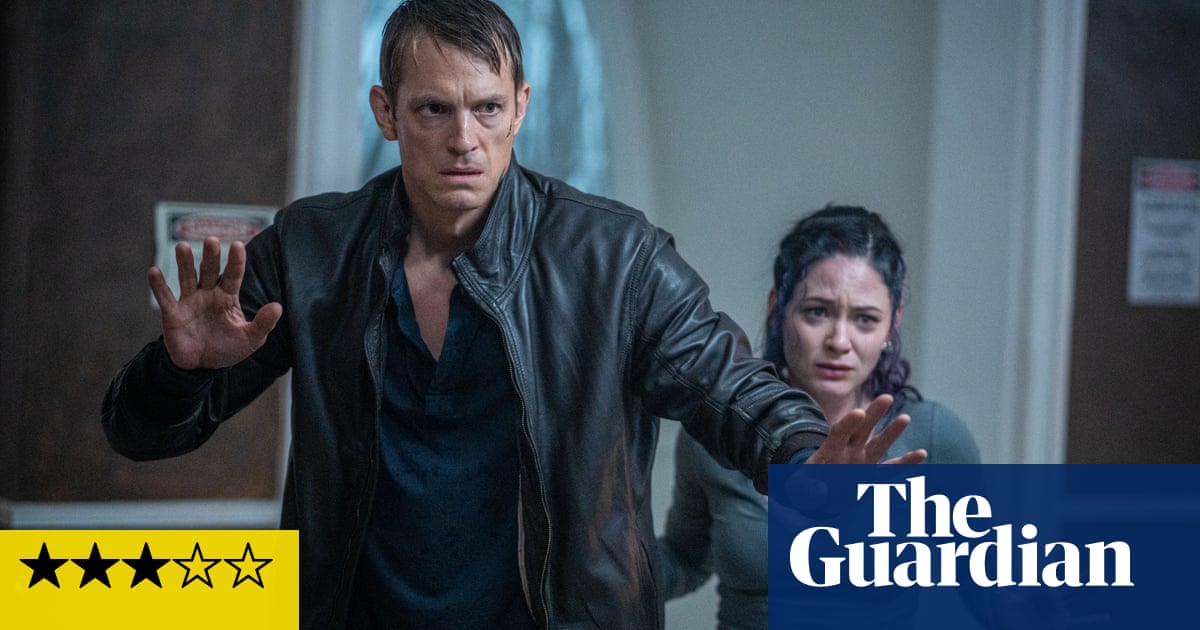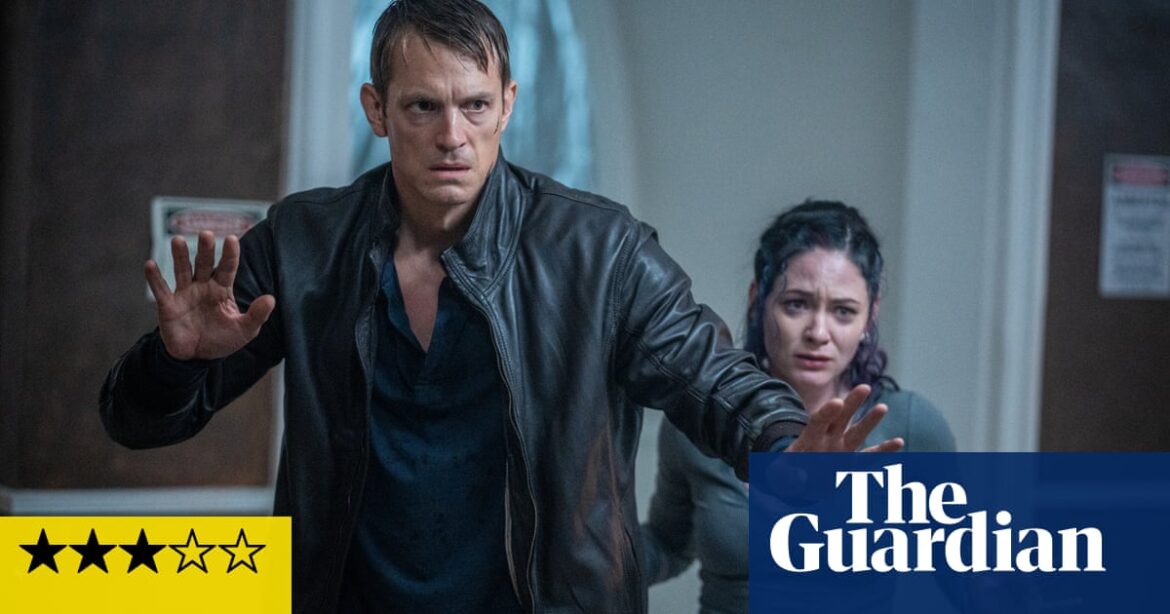
This crime thriller unfolds mostly in a nearly empty apartment building supposedly in Boston, Massachusetts, although the end credits reveal it was actually shot on location in Malta. But that’s fine, because the whole exercise feels weirdly untethered to any specific locale other than the rooms through which the main characters scuttle, trying to avoid getting killed by armed men – who turn out to be cops, just like the male protagonist, Frank Shaw (Joel Kinnaman). The atmosphere gets a further dose of defamiliarisation thanks to the fact that Frank and his fellow victim, Ava (Sandra Mae Frank), are both deaf, a quality that makes them vulnerable but also gives them the advantage of being able to communicate silently through American Sign Language while evading their pursuers.
Frank lost his hearing almost a year ago, having incurred a head injury while trying to make an arrest. Now spending much of his time drowning his sorrows, he is lured back by his former partner, Slater (Mark Strong), to help interpret a witness statement from Ava, who has been deaf from birth and prefers to communicate through ASL. You can’t help wondering why Slater didn’t just ask Ava to write a statement, since the young woman is clearly literate. But his insistence on getting Frank to help out triggers an unfortunate series of events: Frank leaves his mobile phone in Ava’s apartment and then sees the murderers she identified earlier coming back to kill her.
Director Brad Anderson – who has enjoyed mixed success in his career since his breakthrough feature, The Machinist, which starred a gaunt Christian Bale – skilfully works the levers and pulleys of this mechanical game of cat and mouse as Ava and Frank hide from the bad guys. Unsurprisingly, the film mimics the characters’ aural abilities with partly and then totally muted sound – but the visuals are also interesting, the sets full of gloomy corners and ominous pools of darkness.
All the performances are solid, not just the leads but also the antagonists, led by Mekhi Phifer as the main heavy: a not entirely morally bankrupt character who clearly feels his actions are justified. Still, the moral maths seem calculated in advance to ensure a by-numbers outcome, but it’s an absorbing puzzle while it lasts.
Source: theguardian.com



